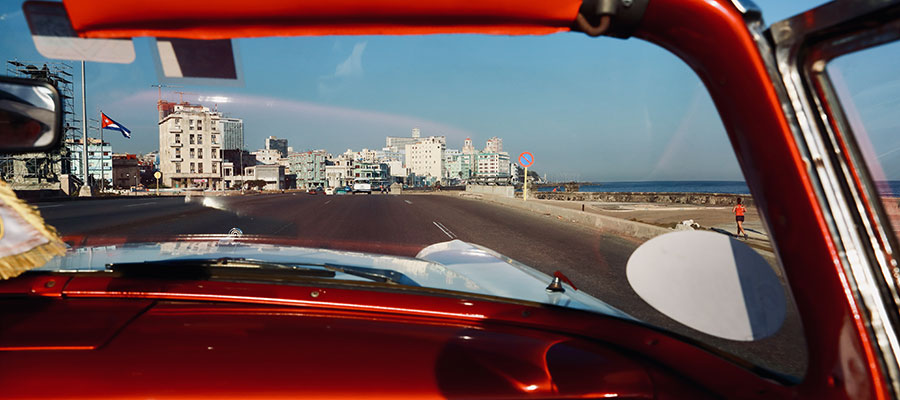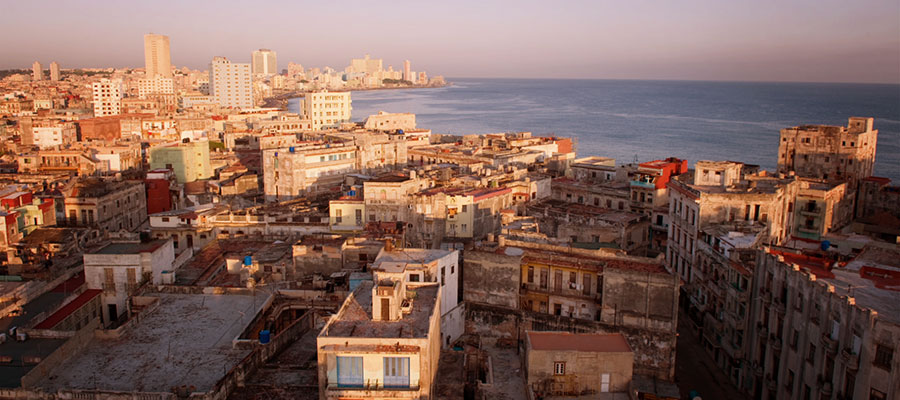With the signing of the No Stolen Trademarks Honored in America Act, H.R. 1505, President Joe Biden weakened the claims of Pernod Ricard and the Cuban government to the Havana Club trademark in the USA (the only country to contest them). Reactions and chronology.
A new episode in the legal battle between Bacardi on the one hand, and the Cuban government and the French group Havana Club on the other, over the rights to the Havana Club brand.
Current US President Joe Biden has just signed a law (No Stolen Trademarks Honored in America Act, H.R. 1505) prohibiting the recognition of trademarks ‘confiscated’ by the Cuban government.
This is a victory for Bacardi, which has been fighting Cubaexport’s rights since 1976. ‘Pernod Ricard expresses its disappointment at the recent enactment of legislation that calls into question its long-standing rights to the Havana Club brand in the United States – a brand that Pernod Ricard and its joint venture partner, Cubaexport, have legitimately owned since 1976. This legislation does not immediately revoke the current rights to the Havana Club brand in the United States, which will remain with Cubaexport until they expire in 2026. Until then, Pernod Ricard and Cubaexport are considering all their options to safeguard their rights,’ said the French group, which created a joint venture with the Cuban government in 1993: Havana Club International S.A. (the 1st mixed company in the Cuban agri-food industry).
Advantage to Bacardi in the USA, to Pernod Ricard in the rest of the world
Bacardi acquired the commercial rights to Havana Club from the Arechabala family in 1994 and claims to own the original recipe developed by José Arechabala. However, while Bacardi’s Havana Club rums could be sold in the USA, they could not be produced in Cuba.
Pernod Ricard prefers to highlight the work of the maestros roneros, whose skills have just been recognised as part of humanity’s intangible heritage by UNESCO, and the fact that their Havana Club rums are 100% Cuban (local raw materials, distillation and ageing on site), and are sold all over the world (125 countries)… except in the USA.
And now a brief review of the various legal actions that have been brought in relation to this issue over the last 50 years.
1934: José Arechabala S.A. establishes the HAVANA CLUB brand and obtains registration of the trademark in the United States.
1959: Production of Havana Club rums is nationalised. The Arechabala family flees to the USA.
1973: José Arechabala S.A. allowed his American trademark HAVANA CLUB to expire by not renewing the registration (renewal was a simple formality that would have cost him USD 25).
1974: Cubaexport applies to the US Trademark Office (USPTO) for registration of the HAVANA CLUB trademark.
1976: The USPTO grants CubaExport registration of the Havana Club trademark in the United States for a period of 20 years (until 1996) and, as a result, CubaExport becomes the sole rightful owner of the trademark in the United States.
1994: Bacardi acquires the commercial rights to Havana Club from the Arechabala family.
1996: CubaExport applies for and obtains renewal of the registration of its HAVANA CLUB trademark for a period of 10 years (until 2006). It should be noted that the Cuban company CubaExport only owns the Havana Club trademark in the United States; in the rest of the world, Havana Club Holding S.A. (HCH – a company which is part of the joint venture) owns the trademark.
1998: Section 211 of the Supplemental and Emergency Appropriations Act for Fiscal Year 1999 (also known as the ‘Bacardi Act’ because it was presented to the US authorities by a Bacardi lawyer and advisor) is passed, to prohibit US courts from recognizing the rights of Cuban companies to trademarks associated with nationalized properties and to make the renewal of these trademarks by their rightful owners subject to obtaining a license from OFAC.
1999: On the basis of Section 211, a New York court dismissed the claims of HCH and HCI against Bacardi based on the illegitimate use of the Havana Club trademark which violated their intellectual property rights under certain international treaties.
2002: The WTO Appellate Body confirmed that Section 211 violated WTO rules. The ruling confirms the EU’s contention that Section 211 violates both the national treatment and most-favoured-nation treatment obligations of the WTO Agreement on Trade-Related Aspects of Intellectual Property Rights (TRIPS).
2006: OFAC informs Cubaexport that it needs a specific licence to renew its trademark registration and refuses the licence. The USPTO indicates that the registration will expire if it is not renewed (OFAC has the discretion to grant or refuse specific licences such as the section 211 licence).
October 2006: CubaExport files a lawsuit against OFAC in the U.S. District Court for the District of Columbia, seeking to overturn OFAC’s decision to deny the license to renew its trademark.
2009: The court rejects CubaExport’s request and confirms the rejection of the licence. CubaExport appeals this decision.
2011: The Court of Appeal upholds the decision of the Federal District Court for the District of Columbia and confirms the refusal of the licence. CubaExport requests that the case be brought before the Supreme Court.
2012: The Supreme Court rejects the case. The case is closed as all legal remedies have been exhausted. In principle, the trademark should be cancelled by the USPTO for non-renewal.
2012-2016: However, the USPTO does not enforce the decision to cancel the trademark, which remains the property of CubaExport in the United States.
January 2016: OFAC grants a specific licence to CubaExport to renew the Havana Club trademark registration.
February 2016: On the basis of this licence, the USPTO confirms the registration of the trademark retroactively between 2006 and 2016 and grants renewal of the registration for a further 10 years until 26 January 2026.
December 2024: Signing of the No Stolen Trademarks Honored in America Act, H.R. 1505.


